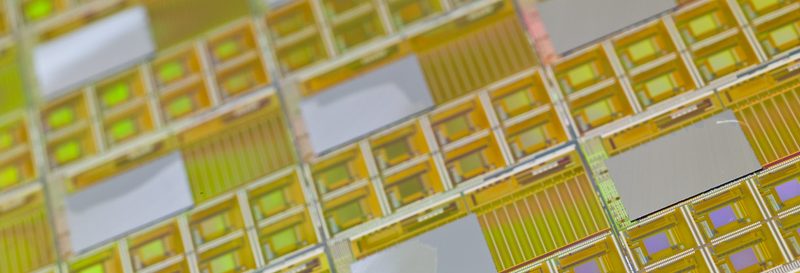CalVision is a collaboration of FNAL (PIs Cummings, Freeman, Hirschauer, Merkel, Wenzel), Argonne (Chekanov), Baylor (Hatakeyama, Wilson), Caltech (Newman, Zhu), CERN (Hillemanns), Lyon (Gascon-Shotkin), Maryland (Belloni, Palmer, Eno), Michigan (Qian, Zhou, Zhu), Milano-Bicocca (Lucchini), MIT (Harris), Perugia (Cecchi), Princeton (Tully), Purdue (Jung), Stony Brook (Hobbs, Tsybychev), Texas Tech (Akchurin, Kunori), U. Virginia (Hirosky, Ledovskoy), U. Buffalo (Yu), Catholic University (Dominguez, Yu, Bartek). Our aim is to work on pushing forward homogeneous calorimetry using multiple measurements such as wavelength, polarization, and timing to improve calorimeter hadronic resolution while maintaining state-of-the-art electromagnetic resolution, developing new lower-cost materials such as scintillating glasses, optimizing its incorporation into a future detector at a future accelerator, and developing novel particle-flow or machine-learning algorithms to best use them in particle identification. We work in collaboration with the proposed IDEA experiment for future Higgs factories.
We welcome new collaborators. Please contact Bob Hirosky (rjh2j@virginia.edu) The Caltech, Maryland, Michigan, MIT, Princeton, Purdue, Texas Tech, and UVA groups were supported by funding by DOE grant DE-SC0022045. The Michigan, Maryland, TTU, Purdue, UVa, Princeton, Baylor, Catholic University groups are supported by DE-SC0025956.
Our relevant publications are:
- New perspectives on segmented crystal calorimeters for future colliders (2020)
- Dual-Readout Calorimetry for Future Experiments Probing Fundamental Physics (2022)
- Particle Flow with a Hybrid Segmented Crystal and Fiber Dual-Readout Calorimeter (2022)
- Geant4 simulations of sampling and homogeneous hadronic calorimeters with dual readout for future colliders (2023)
- Studies of Cherenkov Photon Production in PbF2 Crystals using Proton Beams at Fermilab (2024)
- Progress of Inorganic Scintillators for Future HEP Experiments
- Differentiable Full Detector Simulation of a Projective Dual-Readout Crystal Electromagnetic Calorimeter with Longitudinal Segmentation and Precision Timing
- Dual-readout calorimetry with homogeneous crystals
- On the resolution of dual readout calorimeters
Some recent talks:
- CALOR 22
- Inorganic Scintillators for Future HEP Experiments NSS MIC RTSD conference Milano
- 2023 European CEPC workshop
- 2023 Shanghai CEPC workshop
- HEPAP summer school talk on scintillators 2023
- USFCC Workshop BNL 2023: Full simulation of a hybrid dual-readout segmented crystal ECAL and fiber HCAL option of the IDEA calorimeter
- USFCC Workshop BNL 2023: Fast parameterizations for ray tracing in optical calorimetry
- CPAD 23 single crystal
- CPAD 23 new materials
- CPAD 23 survey of materials
- 7th FCC physics workshop Annecy: First results from CalVision
- USFCC 2024 MIT Higgs factory workshop: Development of a segmented crystal ECAL option for IDEA.
- USFCC 2024 MIT Higgs factory workshop: Geant4 simulations of sampling and homogeneous hadronic calorimeters with dual readout for future colliders
- USFCC 2024 MIT Higgs factory workshop: Dual-readout calorimetry with homogenous crystals and Precision timing characterization
- USFCC 2024 MIT Higgs factory workshop: Dual-readout study with PbF2 crystals
- CALOR24:Dual-readout calorimetry with homogenous crystals
- CALOR24: Vertex Imaging in Hadron Calorimetry using AI/ML Tools
- CALOR24: High-granularity Dual-readout Calorimeter: Evolution of a Classic Prototype
- CALOR24: Full simulation and reconstruction of a segmented crystal ECAL option for the IDEA detector
- CALOR24:Recent Progress of Inorganic Scintillators for Future HEP Calorimetry
- FCC week 2024 Review of Dual Readout Calorimetry
- talk at USFCC meeting 15 Aug 2024
- CPAD24 First results from dual readout crystal calorimetry test beam with electrons at DESY
- CPAD24 Towards GPU Accelerated Full Simulation of Optical Calorimetry with Celeritas
- 2025 FCC physics week Crystal (or homogeneous) calorietry for the FCC – Status and Plans of CalVision/MaxiCC
- 2025 FCC week – Optical Readout Calorimetry
Other web pages:
Group members can proceed to our private wiki here

